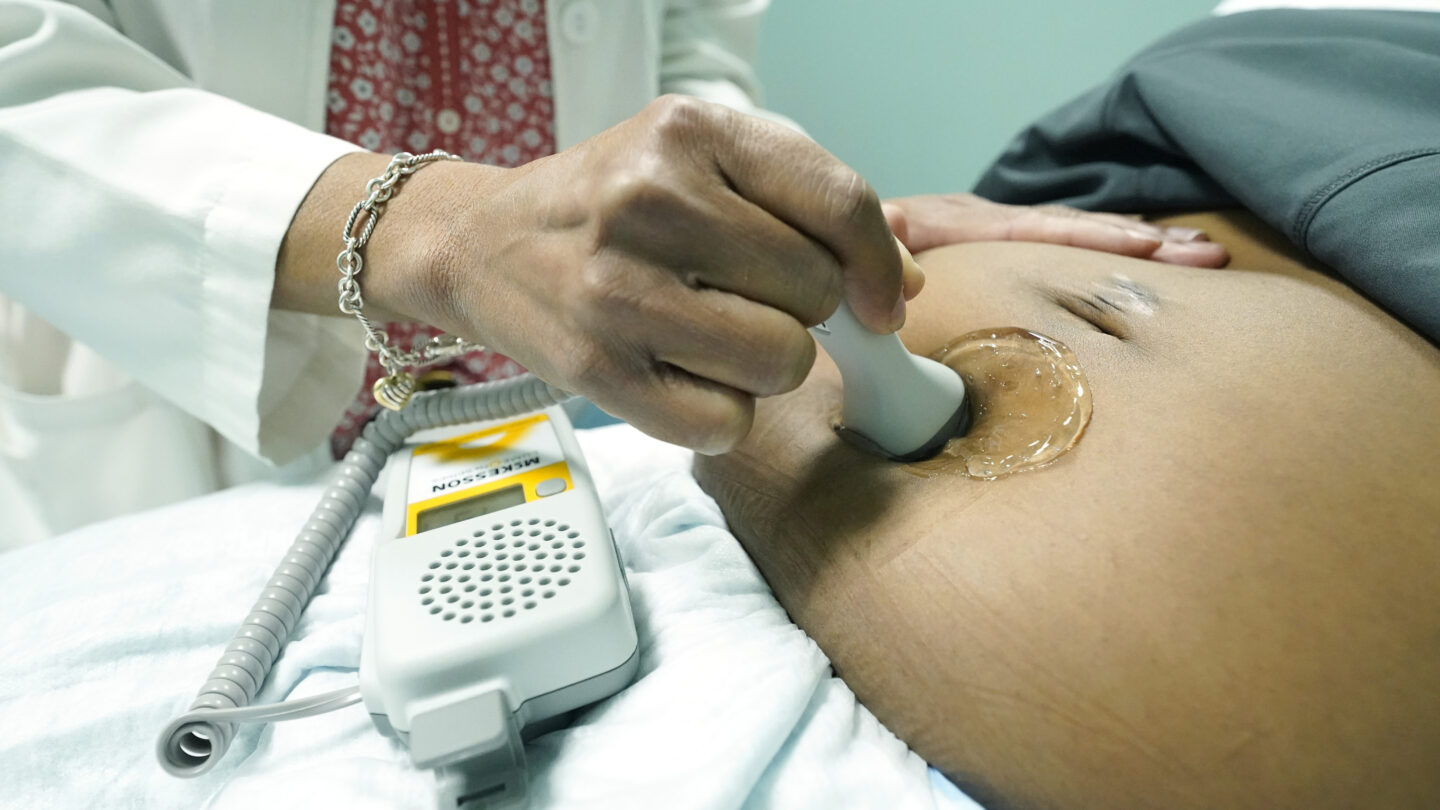A few weeks ago, Dr. Leilah Zahedi-Spung got an emergency call to transfer a patient to the operating room. She’s a Maternal Fetal Medicine physician who specializes in high-risk pregnancy complications.
The patient was only 19 weeks pregnant and hemorrhaging fast.
“When she got to us and moved from stretcher to stretcher,” she says, “she lost 500 cc’s of blood in front of me in under two minutes.”
The patient had placenta previa and critical problems with her uterus, and was in early labor. It can be a life-threatening condition. By the time she stabilized, the patient had lost a third of her total blood volume. The baby wasn’t viable.
Zahedi-Spung says she worries what could happen in a similar emergency if the U.S. Supreme Court strikes down Roe v. Wade, as it indicated in a leaked draft opinion written by Justice Samuel Alito and obtained by Politico.
“Do I need to watch her bleed to death while I call a lawyer to make sure she’s ‘dying enough’ to do a procedure that’s going to save her life? I don’t have the answer to that, and that is terrifying to me.”
Zahedi-Spung now practices in Tennessee. Until recently she worked in Georgia. She’s among the many physicians and nurse-midwives nationwide sounding the alarm since the draft Supreme Court opinion leaked this spring.
Women’s health specialists across the South are planning for how they’ll treat patients who experience miscarriages and pregnancy complications if the Supreme Court overturns Roe v. Wade, the landmark 1973 decision that guaranteed abortion access nationwide, and states enact their own abortion restrictions.
Medical experts say the prospect of abortion bans raises important questions about the possible impacts on physicians’ training and the care they provide for women with high-risk pregnancies and miscarriages.
“And how do we get patients the care that they need quickly and safely, because there are times where miscarriages become very complicated,” Zahedi-Spung says.
Miscarriages are very common. In fact, it’s estimated that 1 in 4 pregnancies ends in a loss, mostly in the first trimester. The American College of Obstetricians and Gynecologists finds early miscarriage is the most common form of pregnancy loss. And sometimes, pregnancy tissue may be left behind in the uterus after a miscarriage, or bleeding continues. To prevent infection or further complications, doctors may need to remove it. This is done using techniques that are also used for abortion.
Dr. Carrie Cwiak is a Professor of Gynecology and Obstetrics at Emory University School of Medicine.
“The same medications are used for early pregnancy loss,” she says. “The same surgical techniques are used for early pregnancy loss.”
For example, with a procedure known as dilation and curettage or D&C. And the medical abortion drugs mifepristone and misoprostol.
“It’s actually a form of mainstream training for all OB-GYNs,” says Cwiak, who says abortion bans could weaken the training doctors need for treating pregnancy complications and fuel suspicion. And that, she says, could shut down access to currently available abortion-technique training for medical students.
“In fact, it’s required by the ACGME, the governing body for all residencies for most institutions.”
People’s lives could be at stake, says Cwiak.
“If I curtail my use of this health care, these medications and surgeries in my ability to train people, they’re going to be less prepared to deal with early pregnancy loss, early obstetric complications, certainly fetal anomalies. The consequences are going to be significant, the adverse consequences.”
Texas may already be seeing some of these adverse consequences. Kaiser Health News reports that the state’s abortion restrictions are already complicating some patients’ access to medication after miscarriage.
In a recent interview, CDC Director Rochelle Walensky told the online news site Stat it’s important to preserve access to abortion skills.
“Our OB-GYN programs need to be trained in how to safely conduct pregnancy termination and not all of that training would potentially happen in many states,” Walensky says. “So, I think that there’s going to be broad implications of this.”
Still, it’s important to note that Georgia’s proposed six-week abortion ban includes exceptions for miscarriage and ectopic pregnancy, and for pregnancies a doctor deems “medically futile.”
The 2019 law signed by Gov. Brian Kemp remains on hold awaiting the Supreme Court decision on the 2018 15-week Mississippi abortion law at the center of the Roe v. Wade leaked draft opinion. The Supreme Court is expected to issue a decision soon on the case.
After that, Georgia’s abortion restrictions could take effect within weeks or months.









